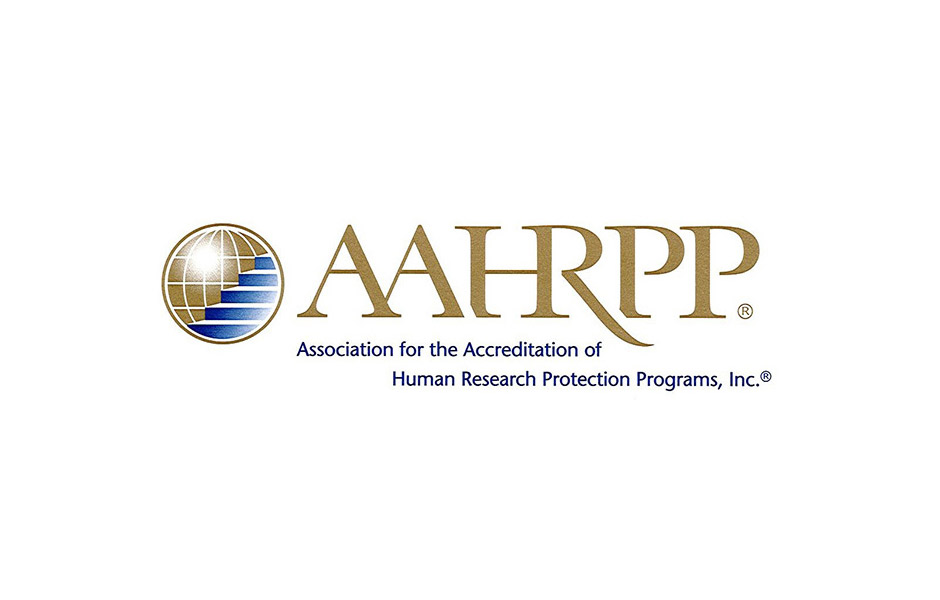Office of Human Subjects Protection
- Who We Are
- Institutional Review Boards
Safeguarding Pediatric Research Participants
The Office of Human Subjects Protection (NOHSP) and its Institutional Review Boards (IRBs) ensure compliance with the ethical standards underlying acceptable conduct of research.
Human subjects protection refers to the principles, guidelines, and regulations established to safeguard the rights, dignity, and welfare of individuals participating in research. This protection is increasingly important when working with children, our most vulnerable patient population.
Our commitment to protecting the health and safety of children is unwavering — from our first clinical trial in 1987 to today. In fact, we are fully accredited by the Association for the Accreditation of Human Research Protection Programs. This means we meet rigorous standards for quality and protection.
What We Do

We protect children and families participating in research through the following framework.
Ethical Principles & Guidelines
We adhere to strict guidelines that protect a child’s autonomy (ability to make decisions), privacy and well-being, including:
- Respect for persons: Acknowledging the dignity and autonomy of individuals, and assuring special protection to children involved in research.
- Beneficence: Maximizing benefits and minimizing risks for participants.
- Justice: Treating participants fairly and assuring that the benefits and burdens of research are equitably distributed.
- Regulations: Operating in accordance with the Belmont Report, Declaration of Helsinki and regulations set forth by the Office of Human Research Protections (OHRP) and the Food and Drug Administration (FDA).
Parental Permission, Informed Consent & Assent
Informed consent in research enables an individual or parent or guardian to make an autonomous decision about participating in a research study. It confirms the study objectives, related procedures, potential risks and benefits, assurance of confidentiality, and voluntary participation.
Informed consent in pediatric research includes parental permission and, as appropriate, the assent of the child. Assent is generally required for kids of a certain age, in addition to parental informed consent.
It’s important to note that participating in a research study is completely voluntary. You can withdraw at any time, for any reason.

Institutional Review Board Oversight
All research involving human subjects at Nemours is reviewed and monitored by independent Institutional Review Boards. An IRB ensures compliance with ethical standards and regulations and provides an additional layer of protection for participants.
Participant Rights & Protections
We adhere to strict measures that protect participant rights. Research participants have the right to:
- Withdraw from a research study at any time.
- Expect privacy and confidentiality of personal information.
- Have appropriate medical care in the event of research-related injury.
We’re Here for You
Nemours Office of Human Subjects Protection
Contact us if you:
- Have questions about what to do if you or your child is injured during research
- Want to provide input about our research programs
- Need more information about our research
- Cannot reach the study investigator
- Need to talk to someone not directly involved in conducting research
Independent Accreditation
Nemours is proud to be fully accredited by the Association for the Accreditation of Human Research Protection Programs.

Protecting Children Through Independent Research Oversight

An Institutional Review Board is a committee of scientists and non-scientists who review all research involving humans as study participants. This independent review process highlights our commitment to conducting responsible research that protects patient safety and well-being.
The IRB determines if a research study complies with federal and state regulations. It ensures the study is conducted in an ethical manner, has scientific merit, and offers benefits that outweigh the risks.
Nemours has an IRB in the Delaware Valley and an IRB in Florida. Our committees are made up of faculty from a wide range of disciplines and specialties, as well as non-scientific community members, legal advisors, nurses, and pharmacists. This diversity provides meaningful viewpoints from multiple perspectives. We may seek outside consultation to supplement our collective expertise.
Roles & Responsibilities
We protect the rights, safety, and well-being of research participants through:
- Reviewing and approving proposed research protocols before the study begins.
- Ensuring that appropriate safeguards are in place.
- Assessing the potential risks and benefits of research studies.
- Reviewing and approving informed consent and assent documents.
- Monitoring ongoing studies for compliance with approved protocols.
- Addressing any concerns raised by participants or researcher.
Federal Regulations & Guidelines
We operate in accordance with federal regulations and guidelines established through:
Initiating a Study at Nemours
External researchers interested in conducting a study at Nemours must submit an application through Huron.
We require all researchers to complete human subjects protection training before submitting a study.
Once the submission is complete, we will review your study proposal. If approved, our team will guide you through the process.
For more information on submitting an application, contact us.


